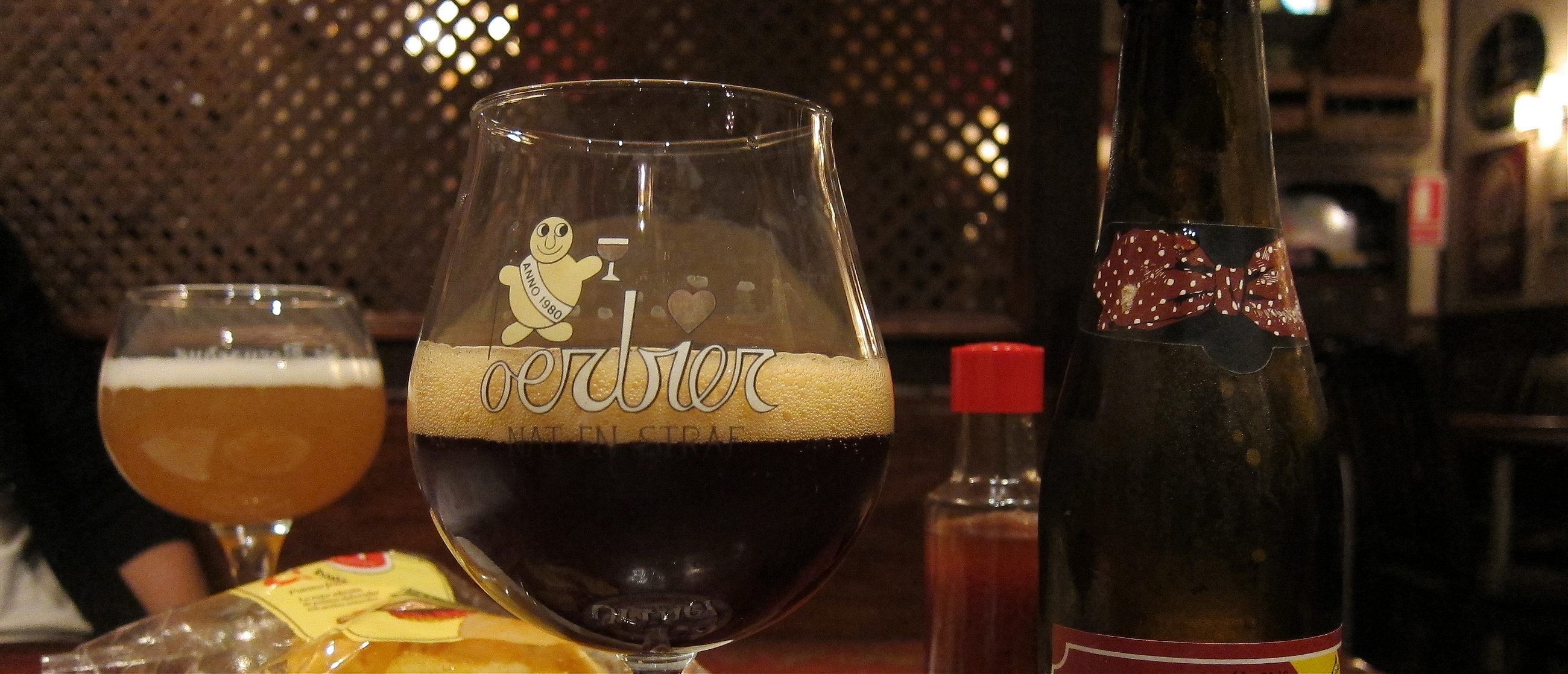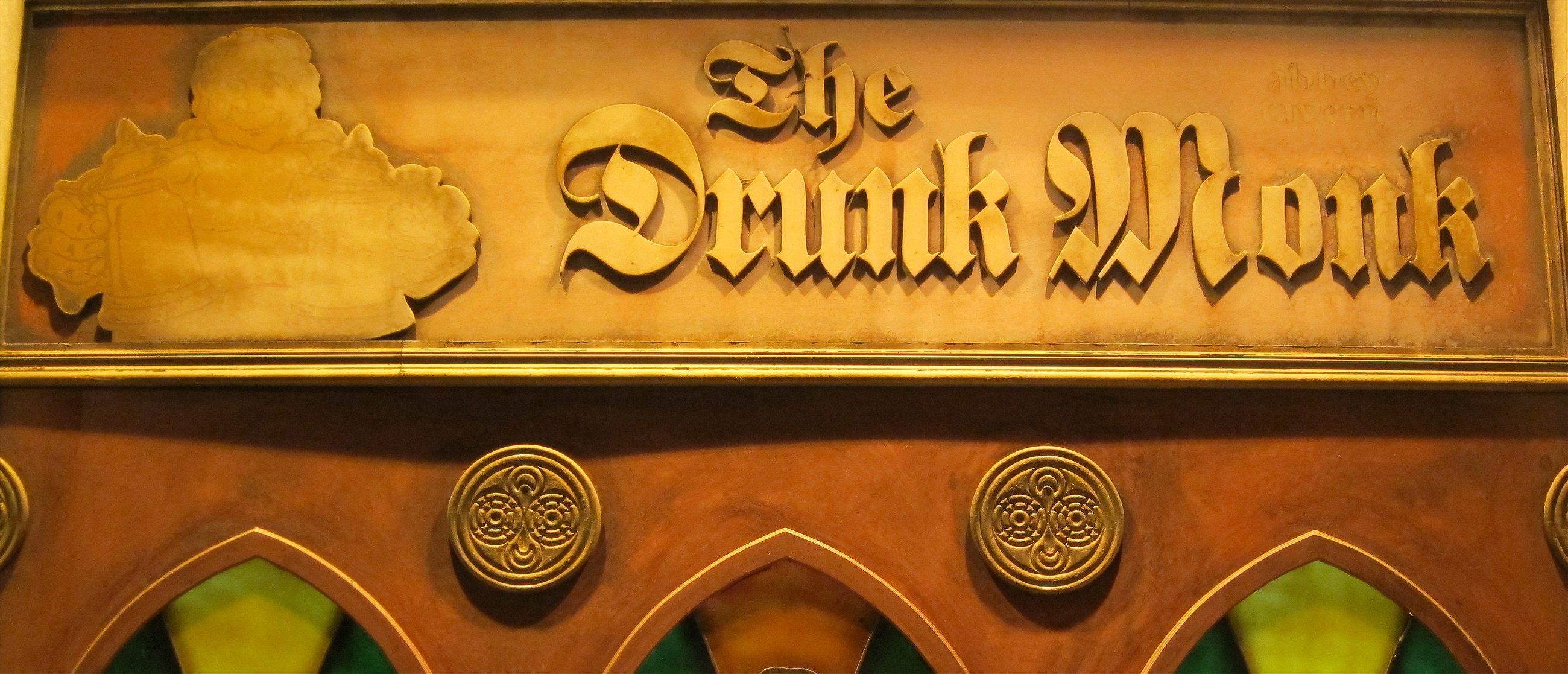How did one of the world’s best bars end up in a country with so little love for beer?
“In Spain, a good beer is a cold beer.”
No, that’s not some ancient dictum you’ll find scribed on Spanish gastronomic scrolls, nor is it the barley-soaked wisdom of an old timer preaching from his bar-stool pulpit. Those are the words of Albert Adrià, brother of Ferran, partner at elBulli and one of the great culinary minds of the 21st century.
Adrià told me this two years ago, as he prepared to open up Tickets, an ambitious modern tapas restaurant in Barcelona that remains the toughest reservation in the city. I asked why his restaurant would have a wine list that spans many pages but a beer list limited to mediocre Estrella Damn products.
In the years since, I’ve accepted Adrià’s adage as law here in Spain, a way to make sense of the fact that neighborhood bars serve 15 types of gin and four types of tonic but just one type of beer, or that a restaurant with a Bible-thick wine list and sparkling waters from four continents only offers Estrella or San Miguel or Mahou—large-scale brews in the same quality camp as Budweiser and Carlsberg. (Or that a chef with a mind so focused on moving forward that he literally invented modernist cuisine would still look at beer quality as a matter of temperature.)
The first time I drank Estrella Damn I proclaimed it to be the best beer in the world. But I was just 18 back then, drinking legally for the first time in my life; had someone poured me a cool pint of turpentine, I would have unhinged my jaw, slammed it down and ordered another round. But 13 years and many thousands of beers later, I can’t help but be bummed out by the fact that Estrella is the beer I drink most. Living in Barcelona, it often feels like there is no other choice.
Spaniards drink beer at all hours of the day, but quality has never been part of the equation. From a historic perspective, it’s completely understandable; people here have always been happy to sip excellent wine, eat world-class pork and drink average beer. But when Spain became the center of the culinary universe 15 years ago, one would think an elevation of all consumption standards—including beer-drinking standards—would have been a natural biproduct. In a country with so much love not just for grape, but for first-rate booze and food of all stripes (from brandy to canned mollusks), why had the microbrew movement, a boom that has impacted almost every other major developed nation across the globe, missed Spain entirely?
All of this had been bubbling around in my head for a couple of years when, just last week, something remarkable transpired. Sipping a coffee and reading the paper at a bar, I came across an article that casually mentioned that the best beer bar in the world is in Mataró, a coastal town 30 minutes to the north of Barcelona. It was like discovering that the best cheesemaker in the world is from an animal-less village in Vietnam, or that a restaurant in Nebraska serves the most exquisite fish on the planet. This seemed to contradict everything I thought I knew about Spaniards and their casual relationship with beer. There was only one way to make sense of it all, and it involved a train ride, some bratwursts and any number of rare, expensive, high-alcohol beers.

The beer menu at the Drunk Monk lands on the table with a thud, a 19-page binder with 500 bottles from a dozen countries. The menu is a sip-by-sip treatise on how to work a beerhound into a state of bliss: puckering, acidic lambics from Cantillon, smoked porters from the States, a 43.5% beer from rambunctious Scottish beermasters Brew Dog, sold in 1-ounce shots. Being a Belgian bar at its core, you will find the full roster of Trappist-brewed beers, including the great mythic beast of the beer world, Westvleteren 12, a brew so sacred that it can only be purchased through a window next to the abbey where the monks brew it. (Years ago I rode my bike through central Belgium with a great friend just to sip this blessed nectar…but that’s a story for another day.)
The Monk’s menu can intimidate cautious souls, but Sven Bosch is exactly the kind of cool hand you want behind the bar guiding you through the sprawling selection. Born outside Antwerp, Bosch moved to Spain when he was 13. He spent years working in the hotel industry until he decided to start his own business. Real estate in Barcelona was too expensive, so he found a small corner space in the center of Mataró and opened up a bar dedicated to the beers of his homeland.
Bosch is 43 now, sturdy and smiley, with a tuft of hair speckled gray like a porcupine’s coat. He’s a lover of stouts, of dark, rich, malty beers, but his list spans the entire universe of fermentation and his knowledge of the beer world can keep you informed and entertained round after round. More than anything, Bosch is the eloquent, passionate drinking buddy we all long to have in our lives, there to remind us that few acts are more noble than drinking good beer in good company.
“One night I had a guy in here drinking and we got to talking. He told me he was from Greece and that he traveled all the way to Mataró just to drink in this bar. We drank until we could barely lift our heads off the table, and I didn’t charge him a cent. How could I?”
He tells me this as we sit sharing one of his current favorites, Rodenbach’s Caractere Rouge, a gorgeous sour ale made with macerated cherries and cranberries. Bosch may come from one of the oldest beer traditions in the world, but he is no traditionalist. He works with renowned brewers to create exclusive Drunk Monk selections. His current project involves pumpkin and fresh chilies.
But it hasn’t been all sour ales and pumpkin porters at the Monk. Bosch, by all measures, established a beachhead for serious drinkers in a world that couldn’t distinguish a hop from a hangover.
“There were very few people here 12 years ago when I opened,” he says. “Beer here has always been about consumption, not quality. You can go to a three-star Michelin restaurant and you have a huge wine list, a liquor list, even a water list, but you order a beer and what do you get? Guinness. Estrella.”
But in the past five years, Bosch says, beer has become a new frontier for Spaniards who care about taste. Home brewing has picked up a feverish following in Catalonia and beyond, and some of these domestic experiments are starting to translate into commercial enterprises. Microbrewers like Zulogaarden, Agullons and Almogàver have gained a following among young Catalan beer geeks. New beer bars are opening up in Barcelona with world-class lists: La Cerveteca on the edge of the Gothic Quarter, Ale y Hops tucked back on a small street in the born, Dos Dedos de Espuma, that magical trifecta of distributor, bar and beer store. Individually, they represent a small counter to the masses of Spaniards who would still prefer to pay 1.50€ for a caña of lager than 5€ for a pint of Belgian double; collectively, they foretell a movement that will have a profound impact on the way many people in this country consume beer.

While we drink, customers stream steadily into the bar, positioning themselves on stools or in the low-lit oak booths, hunkering down for a night of revelry. Snappy sausages and wedges of ripe Belgian cheese stream out of the kitchen, accompanied by brews made by monks who take their drink strong. Many of the customers stop by our table to pat Bosch on the back, ask him about new arrivals, trade some quick beer gossip. Bosch’s patriarchal presence gives the scene the feeling of a hopping house party as much as a corner bar on a Saturday night.
Is this the best beer bar in the world? After all, the ranking (which shifts all the time but features Bosch’s bar in the top slot frequently) comes from ratebeer.com, a community of beer devotees that collectively represent one of the most authoritative sources on matters of the sort. Bosch plays it cool. “There are 90,000 bars on the list. To be in the top 50 or 100 is an honor. We’re all doing good work.”
More than his own reputation, Bosch seems genuinely proud to be a part of a country slowly but steadily building a real beer culture.
“In the next 10 years we’re going to be making some incredible beer here.”
As long as it’s cold, I’m sure the Spaniards will be happy.